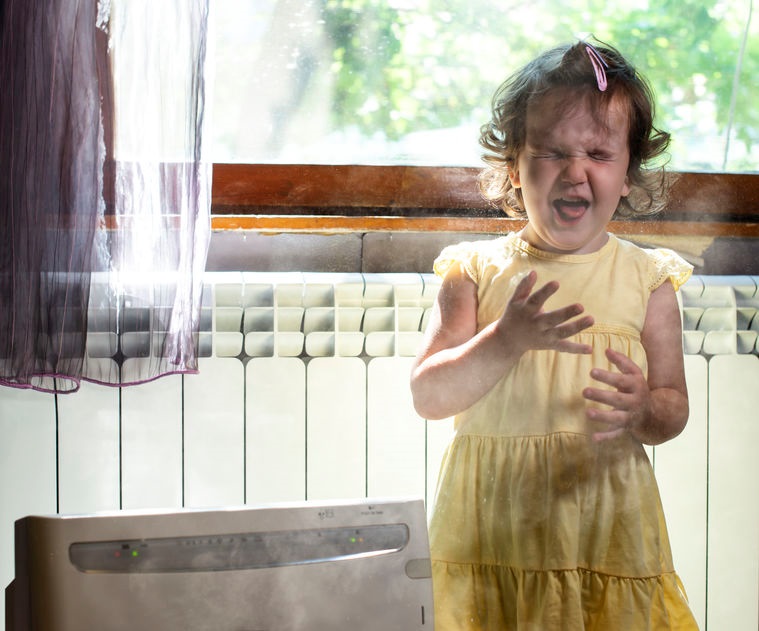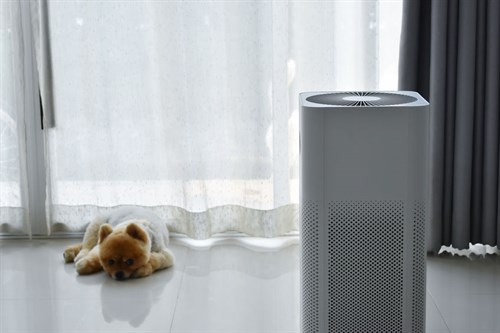
How Indoor Air Contaminants Can Affect Your Health
According to the World Health Organization, around seven million people die each year as a result of air pollution. While many of these deaths can be attributed to ambient or outdoor air pollution (e.g. smog), around half of the deaths caused annually by pollution are a result of indoor air contaminants.
While this problem affects all of us, considering how much time we spend inside, it tends to affect low and middle-class families the most. So what is it about the air in our homes that makes it so harmful and how can we fix it?

While anyone who spends a significant amount of time inside can be harmed by indoor air pollution, certain individuals should be especially careful about keeping their home’s air clean, including:
If you’re nervous about the effects of radon, you can easily find professionals who will come to your home, check your radon levels, and suggest solutions to keep your home safe from this toxic gas.
Finally, changing your air filter regularly and scheduling annual maintenance for your HVAC system are two steps that can go a long way toward protecting you and your family. If you haven’t had your HVAC system inspected in a while, now’s a perfect time to call Odyssey Mechanical at 910-392-6400 and Request an Appointment.
While this problem affects all of us, considering how much time we spend inside, it tends to affect low and middle-class families the most. So what is it about the air in our homes that makes it so harmful and how can we fix it?
Top Indoor Air Contaminants
Believe it or not, many of the most common indoor air contaminants originate indoors. The Environmental Protection Agency has produced research that indicates indoor air is more contaminated than air from outdoors. Below are some of the indoor air pollutants that can have the greatest impact on your health:
- Combustion products are by far the worst type of indoor air contaminant, and they’re also responsible for the most deaths. You may not realize it, but any gas-powered appliance or machine in your home, including washers, dryers, water heaters, and furnaces, can produce deadly CO2.
- Dust can consist of things like fibers, dirt, and even dead skin cells, and it tends to build up when you forget to change your air filter. If you want to avoid dust mites or nasty allergies, make sure you’re changing your air filters regularly.
- Moisture can slowly make its way into your home and will, over time, cause a whole host of serious problems. We all know that excess moisture can encourage mold growth, but it can also cause mildew and dust mites to thrive.
- Volatile organic compounds or VOCs can release harmful chemicals into the air. Certain types of furniture, carpeting, and paint can release formaldehyde, pesticides, and other VOCs directly into your home’s air.
- Radon is a type of radioactive gas that’s trapped below the surface of the earth. It’s not uncommon for radon to leak into homes without the homeowners ever realizing it.
- Tobacco smoke is harmful in and of itself, and it becomes much more so when it’s trapped inside your home. Not only could smoking inside affect your health, but it could hurt your family and pets as well.

Risks and Side Effects of Indoor Air Contaminants
While anyone who spends a significant amount of time inside can be harmed by indoor air pollution, certain individuals should be especially careful about keeping their home’s air clean, including:
- The elderly
- Pregnant women
- Those who are immuno-compromised
- Those with bad allergies
- Those with a chronic respiratory disease (e.g. asthma)
- Those with cardiovascular conditions
- Sneezing
- Coughing
- Watery eyes
- A sore or scratchy throat
- Headaches
- Congestion
- Stuffy nose
- Fatigue
- Dizziness
How Can You Keep Your Home’s Air Clean?
Fortunately, preventing these issues is relatively simple. Firstly, if you have gas-powered appliances in your home, make sure they are regularly cared for and that you have a carbon dioxide detector installed to alert you if CO2 levels get too high.If you’re nervous about the effects of radon, you can easily find professionals who will come to your home, check your radon levels, and suggest solutions to keep your home safe from this toxic gas.
Finally, changing your air filter regularly and scheduling annual maintenance for your HVAC system are two steps that can go a long way toward protecting you and your family. If you haven’t had your HVAC system inspected in a while, now’s a perfect time to call Odyssey Mechanical at 910-392-6400 and Request an Appointment.

